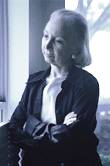Older adults react differently to treatment, oncology group notes
TUESDAY, July 28, 2015 (HealthDay News) — In a position statement published online July 20 in the Journal of Clinical Oncology, the American Society of Clinical Oncology has called on the U.S. government and the cancer research community to broaden clinical trials to include older adults.
“Older people living with cancer often have different experiences and outcomes in their treatment than younger cancer patients,” Julie Vose, M.D., M.B.A., society president, said in a news release from the group. “As we age, for example, the risk of adverse reactions from treatment significantly increases. Older adults must be involved in clinical trials so we can learn the best way to treat older cancer patients, resulting in improved outcomes and manageable toxicity,” she explained.
More than 60 percent of cancers in the United States occur in people aged 65 and older, the statement authors say, noting the number of seniors will increase in coming years. However, there is a lack of evidence about cancer treatments for the elderly because too few are included in clinical trials, and clinical trials designed specifically for seniors are rare.
These trials need to mirror the age distribution and health-risk profile of patients with cancer, statement coauthor Arti Hurria, M.D., director of City of Hope’s Cancer and Aging Research Program in Duarte, Calif., said in the news release. The American Society of Clinical Oncology “has laid out a multi-pronged approach to expand the participation of older adults in clinical trials, ensuring that all patients will receive high-quality, evidence-based cancer care,” Hurria added.
Several authors disclosed financial ties to the pharmaceutical and biotechnology industries.
Copyright © 2015 HealthDay. All rights reserved.








